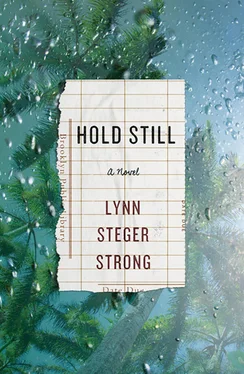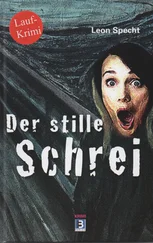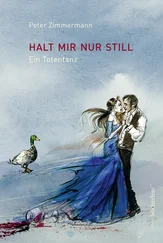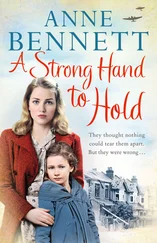“Crazy girl?” This was a boy up front, Paul: Annie’d doodled his face next to the word “malapropos” before she’d stopped taking the tests.
“Someone said she went to Lawnwood,” he said.
This was the inpatient center two towns away. When Maya was in middle school one of her classmates was found hung from the ceiling fan in the basement of Lawnwood.
“Right,” she said.
The next Monday though Annie was back. Maya was so relieved she almost cried. She almost cried right up to the point when she looked more closely at Annie, and then, immediately, her eyes did begin to pool and she had to turn away. Annie’s face was flat and puffy. Her skin was wan. She wore sweatpants and a large sweater, even though this October was still hot like August or July.
Maya split the kids into groups and told them to close-read a passage from An American Childhood . She read it out loud before she let them begin to rearrange their desks. She wanted to be sure that Annie heard. The hard water pelts your skull, bangs in bits on your shoulders and arms. The strong water dashes down beside you and you feel it along your calves and thighs rising roughly back up, up to the roiling surface, full of bubbles that slide up your skin or break at you at full speed. Can you breathe here? Here where the force is the greatest and only the strength of your neck holds the river out of your face?
She stopped herself before finishing the passage. Annie’s shoulders shook. Maya walked over to her while the others got up, moved chairs and bags and notebooks, set to work. “You okay?” she said. Annie’s hair was spread across her desk; the only sign of life was her foot shaking, tapping the heel of her sandal against one of the desk’s metal legs. Maya reached down and grabbed hold of Annie’s upper arm. It was freezing in the classroom. It was so hot outside, but they pumped the AC through, and the fluorescent lights shone down on the pallor of Annie’s skin. Maya’d been to just enough staff meetings to know that touching was not all right — one of the few contributions her mentor had given her was a flyer about sexual harassment her second day — but she grabbed hold of Annie’s arm again and pushed, trying to get her to raise her head.
“Annie?” she said again. “You okay?”
Instead of lifting her head, Annie groaned. She made her body heavy enough that Maya would have had to use both hands to raise her arm. The whole class looked up from their groups. Paul and a girl next to him began to laugh.
Maya left Annie and walked over to their group. They both stopped laughing. “Back to work,” she said and turned back to Annie, whose head had fallen again on the desk.
She didn’t want the others gawking, so she left her. She went from group to group, keeping them on task. Annie was out the door before the bell rang. Maya meant to grab her, talk to her, but she’d chickened out. The next period she had free and often left early to go running, but she stayed put awhile, reorganizing her plans for the next day, staring at the desk where Annie had been. And then there Annie was again, walking back through the door. She didn’t have her stuff; just one of the laminated yellow slips of paper the whole school used as passes to walk through the halls during class. Maya started to say her name, but Annie spoke first. “I couldn’t,” she said. “I didn’t want to be there anymore.”
Maya wondered briefly about the protocol. They weren’t supposed to be alone in any rooms with students when the doors were closed. She pulled a chair up close to her desk and nodded to Annie to sit.
“Where are you supposed to be?”
Annie looked at her. This was the wrong question, what every other teacher knew to ask.
“Pre-calc,” Annie said. “But I can’t.”
“Okay.” Maya nodded. “What, then? What do you need?”
“Can I just stay here?” Annie asked.
Maya nodded. She handed her the bag of chips she’d brought with her sandwich and sat back in her chair. Annie held her hand up to her mouth. “I just. .” She crumpled the paper. “I started to feel really sick.”
Maya figured eventually someone would come to look for her, although someone might have, they just might not have thought to look in Maya’s room.
“They made me take these drugs,” said Annie. “They said if I didn’t I had to go to the hospital.” She took a napkin off of Maya’s desk and began ripping it into pieces, rolling each into tiny balls with her thumb and index finger as she talked. “But there’s nothing wrong with me. I mean, everything is wrong, but mostly it’s just I’m not who they want.”
Maya leaned in then and hugged her. She held her tight and let her cry.
For two weeks after that, Annie came and sat in Maya’s classroom every day. It took the administration that long to realize where she’d been. Finally, Maya was called in for a meeting. She knew very well from the outset the trouble she might be getting herself into. She just hadn’t thought to care.
“This is serious,” said Mrs. Skinner. Her face was pleading. She’d gotten her this job, fast-tracked Maya’s temporary teaching certificate. She’d been telling everyone what a talent Maya had with the kids. “There are rules,” she said.
She’d convinced Annie’s parents to let her speak to Maya alone first.
Maya could feel the fluorescence of Annie’s mother’s dress straight through the door.
“The mother’s threatening to sue.” Mrs. Skinner was wearing a dark blue suit and her hair was slicked back tightly into a bun. She reached up and brushed back a nonexistent errant hair. “These aren’t people you want to mess with, Maya,” she said.
A file was created. Annie was pulled from her class. At the end of the semester, the teacher Maya had been filling in for decided to come back.
Maya applied to grad school. Within two months, she was making plans to head back to New York in the fall. She’d never meant to be in Florida and now she had a reason to leave again. In the meantime, it felt fine to let Annie come over to her father’s house. She figured Annie was lying to her parents, but Maya didn’t ask. She was too hungry for Annie’s company, too happy to have her there. They sat out on the dock watching the sun go down and the alligators sunning themselves on the shore on the opposite side of the creek and talked about life and books and whatever it was they hoped to be someday.
Annie was still skipping school often, just barely getting through. She’d been in a car accident out by the beach in the middle of the afternoon and totaled her brand-new car. Her parents sent her to a new therapist every couple weeks, each time expressing frustration, firing the therapist violently, angry that after that small span of time their daughter still didn’t seem to be fixed.
“The last one just let me talk for a really long time, then told me I was probably born to the wrong family.”
Annie laughed, so did Maya.
“What the fuck am I supposed to do with that?” Annie asked.
“Did you ask her?”
Annie shrugged, raising her eyebrows, her eyes rolling up in her head. “We ran out of time.”
“Did you tell your parents that one?”
“They prefer the ones who recommend the meds.”
Maya looked down at the bottle of Riesling she’d opened, which they were sharing. It didn’t feel wrong, though later, looking back, she’d worry for both her and Annie then.
There were times when Maya felt infinitely older. The five years that separated them were major, transformative years. They were supposed to be. Except Maya had spent most of them all wrapped up in books. So, now, with Annie challenging her, engaging with her outside the classroom, she didn’t always feel like she was the one who might know what to do.
Читать дальше












